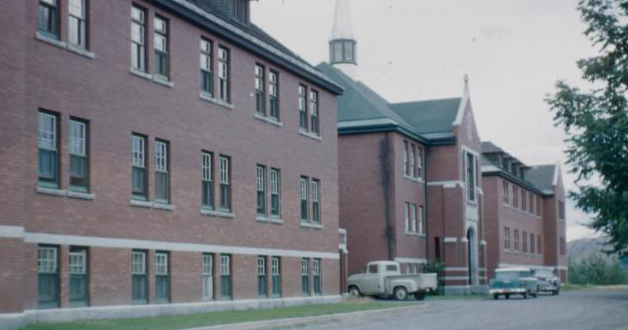By Jeremy Appel, Local Journalism Initiative Reporter
(ANNews) – On Nov. 7, the Canadian Senate’s Committee on Indigenous Peoples heard testimony from the Missionary Oblates of Mary Immaculate (OMI) General Archives in Rome, as part of the upper chamber’s efforts to hear from entities who have yet to release their full records on children who were forced to attend residential schools.
The OMI operated 48 residential schools in Canada.
The committee meeting, which was chaired by Senator Brian Francis, also heard testimony from Archbishop Murray Chatlain of the Archdiocese of Keewatin-Le Pas, who was the first to testify.
In 2013, the Archdiocese of Keewatin-Le Pas submitted all its documents to the National Centre for Truth and Reconciliation (NCTR), a process which was thought to be completed by 2014, Chatlain testified.
In 2021, however, the Archdiocese found some lists of residential school attendees in a box of archives, which were submitted to St. Boniface Historical Society for digitization after discussions with the NCTR.
The day before the Nov. 7 hearing, the lists’ metadata came into the NCTR’s possession.
Chatlain said the Archdiocese is working to provide the NCTR with relevant “sacramental records.”
“Sacramental records are some of the church’s most precious records and a sacred trust. They hold vital records of personal and civil importance, and so must be maintained in accordance with the privacy provisions under both federal and provincial civil law,” he said.
Representing the Oblates was general archivist Fr. Velichor Abaranam Jerome and Fr. Warren Brown from general administration.
Father Jerome, who provided testimony on the OMI’s behalf, said NCTR’s lead archivist Raymond Frogner visited the OMI’s Rome archives last year to examine their files on record. He selected some photos and documents to be sent to the NCTR in digital form, Jerome testified.
“Most of the general archive photos are part of a very informal collection, along with photos from our other Oblate units without any formal description,” he said.
Among these documents was a list of Oblates who worked in residential schools, which Jerome said he provided to Frogner.
According to Jerome, the documents requested by Frogner have been digitized and sent to the OMI Richelieu — the first Oblate in Canada — archives for metadata inclusion.
Sen. Scott Tannas (Alberta) asked Jerome whether the European Union’s privacy laws, which Jerome referenced multiple times during his testimony, constitute “an obstacle for the transfer of valuable information to the NCTR.”
Jerome said the OMI consulted its lawyers about privacy legislation, “but there was no problem,” so they continued the digitization process.
Tannas then asked Archbishop Chatlain how confident he is that his Archdiocese has submitted everything in its possession, since it found new documents two years ago.
“We feel that everything is there. Maybe there’s a little surprise, but we are absolutely not holding anything back,” Chatlain said. “If we find a little bit, we’ll do the exact same thing, but for sure the vast [majority] is there.”
Sen. Karen Sorensen (Alberta) described former residential school staff as “living archives” who may have germane information, including where children who had tuberculosis were sent and where children who died were buried.
“Time is of the essence. Survivors and their family members are aging and, to put it bluntly, at the current rate, people will continue to die before they find out the truth,” Sorensen added, asking what efforts have been made to obtain information from living former staff.
Here, Fr. Jerome suggested that privacy issues are a barrier, noting that OMI’s policy is to only release documents about an individual 25 years after they die.
But, he added, it would be the responsibility of the Canadian Oblates to provide information about residential school staff.
Fr. Brown added that the archives in Rome are “very skeletal” with just “basic data about each member.”
“The vast majority of information is held in Canada and Canadian provinces and superiors have been working, and are very open, to … speaking to the personnel who worked in the residential schools,” said Brown.
Sorensen then asked Archbishop Chatlain if that process is underway in Canada.
“There’s been a little bit of interviewing, but I think we should work on this sooner, with specific questions about particular communities [and] particular cemeteries. I think that would be helpful,” Chatlain acknowledged.
Sen. Dennis Glen Patterson (Nunavut) inquired about the availability of information regarding OMI priests who were convicted of sexually abusing children at residential schools.
According to Patterson, Frogner testified at an earlier meeting that he was unable to get detailed information on a dozen priests convicted of sexual abuse.
Fr. Jerome said this was the “first time” he’s heard that Frogner had any access to files limited by the OMI.
“Maybe it would have happened outside our general archives. I wouldn’t know,” Jerome said.



Be the first to comment on "Senate committee hears testimony from Missionary Oblates of Mary Immaculate"